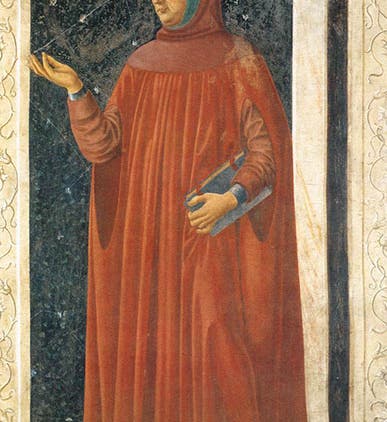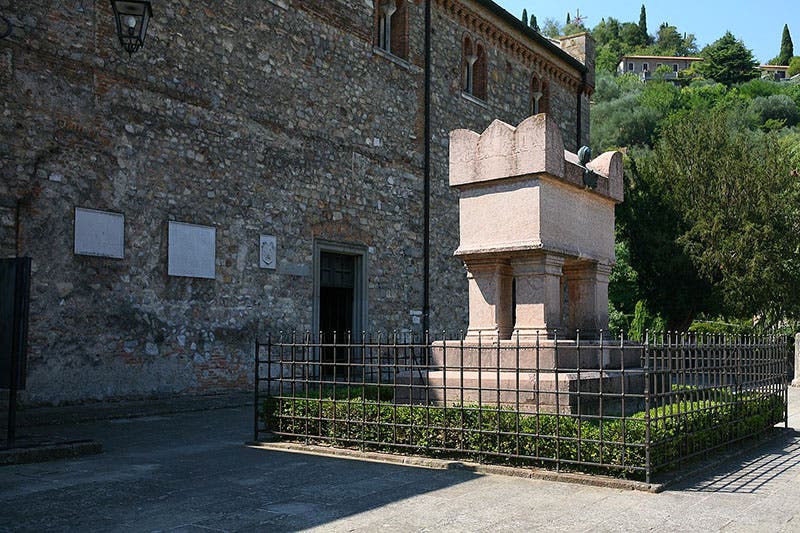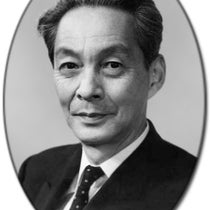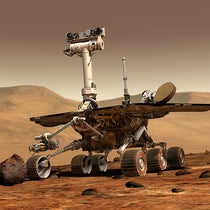Scientist of the Day - Francesco Petrarca
Francesco Petrarca, an Italian scholar and poet, was born July 20, 1304. Petrarca, often referred to as Petrarch, is known for many things. He was one of the great Italian poets, inventor of the Petrarchan sonnet. His version of the Tuscan dialect eventually became canonized as the Italian language spoken today. He virtually created recreational (and introspective) mountain-climbing when he ascended Mount Ventoux near Avignon in 1336. And his was the quintessential example of unrequited love, as his poetic passion for Laura de Noves was unfulfilled during her lifetime.
Today, however, we celebrate Petrarca as the founder of Renaissance humanism, which makes him, in a way, the father of the Italian Renaissance itself. Humanism was not a philosophy or a creed, but rather an educational program; humanists like Petrarch believed that the best instruction in rhetoric, grammar, politics, and moral philosophy was to be gained from a study of ancient Roman texts. Petrarch's particular hero was Cicero; he loved the way Cicero wrote, and what he had to say about leading a moral life, and he admired the way Cicero abandoned his ivory tower and threw himself into public life in an attempt to save the Roman republic. Petrarch even wrote letters to Cicero, considering him the only worthy correspondent he knew.
Humanists were important for the Renaissance in general because they sought to recover the complete written legacy of antiquity, and they were astonishingly successful at the task. We have written posts on several Renaissance humanists over the years, including Marsilio Ficino, Cyriaco d’Ancona, and Desiderius Erasmus, and we will one day offer entries on Poggio Bracciolini, Angelo Poliziano, and Giovanni Pico della Miranola. All of them were in a direct scholarly line that stems from Petrarca.
Humanists were also instrumental in the development of Renaissance science. Humanists rediscovered the works of Plato, Archimedes, Vitruvius, Hero, and the Geography of Ptolemy, and together with the works of Aristotle, Euclid, Ptolemy, and Galen that were known to the Middle Ages, laid the foundation for the scientific revolution of the 17th century. Nicholas Copernicus was a humanist, as was Andreas Vesalius; in trying to revive the astronomy and anatomy of antiquity, they, almost in spite of themselves, showed that it was possible to go beyond the achievements of the past. In a sense, humanism was so successful that it led to its own demise, as moderns finally realized that they now knew more than the ancients who had inspired them. But without humanism, there would have been no moderns.
Petrarca spent his last years in the town of Arquà (now Arquà Petrarca) in the Veneto and is buried there (second image). His statue was included in the arcade of great Florentines that lines the street below the Uffizi. The portrait by Andrea del Castagna, a fresco transferred to wood and painted about 1450, is in the Uffizi in Florence (first image).
Dr. William B. Ashworth, Jr., Consultant for the History of Science, Linda Hall Library and Associate Professor emeritus, Department of History, University of Missouri-Kansas City. Comments or corrections are welcome; please direct to ashworthw@umkc.edu.







